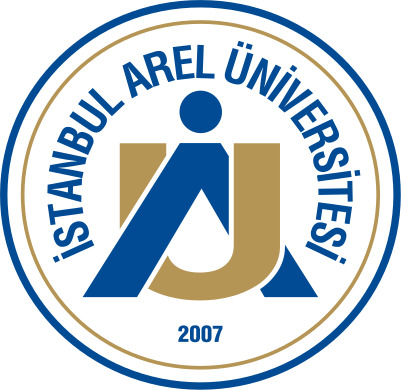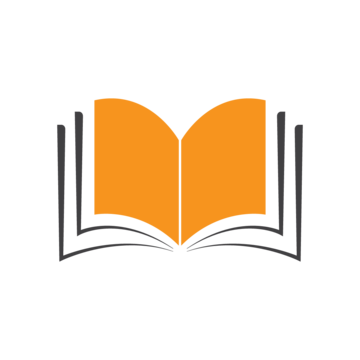Medical Laboratory Techniques
Overview
<!-- wp:paragraph --> <p><strong>Program Description</strong><br><strong>Medical Laboratory Techniques at Istanbul Arel University: Advancing Healthcare Through Laboratory Science</strong></p> <!-- /wp:paragraph --> <!-- wp:paragraph --> <p>The Medical Laboratory Techniques program at Istanbul Arel University is designed to prepare students for a vital role in the healthcare sector, where they will perform laboratory tests that aid in the diagnosis, treatment, and prevention of diseases. This program provides students with the essential skills and knowledge in laboratory science, including the analysis of blood, tissues, and bodily fluids. With a focus on both theoretical understanding and practical laboratory skills, students are trained to operate advanced laboratory equipment, conduct various diagnostic tests, and ensure accuracy and safety in medical laboratory procedures. Graduates of this program are equipped to work in a variety of settings, including hospitals, diagnostic laboratories, and research institutions, making valuable contributions to patient care.</p> <!-- /wp:paragraph --> <!-- wp:paragraph --> <p><strong>Program Mission and Vision</strong><br>The mission of the Medical Laboratory Techniques program is to train students to become highly skilled laboratory technicians who are capable of performing diagnostic tests with precision and efficiency. The program emphasizes the importance of safety, ethical practices, and attention to detail in laboratory work. Its vision is to produce competent, reliable, and knowledgeable laboratory professionals who can contribute to advancing medical diagnostics, improving patient outcomes, and supporting healthcare providers in their decision-making process.</p> <!-- /wp:paragraph --> <!-- wp:paragraph --> <p><strong>Curriculum Structure</strong><br>The Medical Laboratory Techniques program combines foundational laboratory science with specialized training in clinical diagnostics and laboratory management. The curriculum includes both theoretical coursework and hands-on laboratory practice. Key areas of the curriculum include:</p> <!-- /wp:paragraph --> <!-- wp:paragraph --> <p><strong>Introduction to Medical Laboratory Techniques:</strong> This course introduces students to the role of laboratory technicians in healthcare settings. It covers basic laboratory safety, laboratory ethics, the structure and function of medical laboratories, and the fundamental techniques used in laboratory testing.</p> <!-- /wp:paragraph --> <!-- wp:paragraph --> <p><strong>Basic Laboratory Techniques and Equipment:</strong> Students learn about the basic tools and equipment used in medical laboratories, including microscopes, centrifuges, and pipettes. They are trained in essential laboratory techniques, such as sample collection, preparation, and proper handling of specimens.</p> <!-- /wp:paragraph --> <!-- wp:paragraph --> <p><strong>Clinical Chemistry:</strong> This course focuses on the chemical analysis of blood and other bodily fluids to assess various health conditions. Students learn about biochemical tests used to monitor and diagnose diseases, such as liver function tests, cholesterol levels, and blood glucose analysis.</p> <!-- /wp:paragraph --> <!-- wp:paragraph --> <p><strong>Hematology:</strong> Students learn the principles and techniques of hematology, the study of blood and blood-forming tissues. This course covers the analysis of blood samples to diagnose conditions like anemia, leukemia, and clotting disorders, with a focus on blood cell morphology and blood count tests.</p> <!-- /wp:paragraph --> <!-- wp:paragraph --> <p><strong>Microbiology:</strong> This course introduces students to microbiology, including the identification and analysis of pathogens such as bacteria, viruses, fungi, and parasites. Students learn about various laboratory techniques, such as culture and sensitivity tests, to identify infections and help determine appropriate treatments.</p> <!-- /wp:paragraph --> <!-- wp:paragraph --> <p><strong>Immunology and Serology:</strong> Students study the principles of immunology and serology, including the body's immune response and the laboratory techniques used to diagnose diseases like HIV, hepatitis, and autoimmune disorders. The course covers immunoassays, antigen-antibody reactions, and other diagnostic tests.</p> <!-- /wp:paragraph --> <!-- wp:paragraph --> <p><strong>Clinical Pathology:</strong> This course covers the study of disease processes and how they can be detected through laboratory testing. Students learn to identify abnormal laboratory results that indicate the presence of diseases or medical conditions, focusing on the relationship between laboratory findings and clinical diagnosis.</p> <!-- /wp:paragraph --> <!-- wp:paragraph --> <p><strong>Urinalysis and Body Fluids Analysis:</strong> Students learn to perform tests on urine and other body fluids, gaining skills in testing for a range of conditions, such as urinary tract infections, kidney function, and metabolic disorders.</p> <!-- /wp:paragraph --> <!-- wp:paragraph --> <p><strong>Molecular Biology and Genetics in Medicine:</strong> This course focuses on the molecular techniques used in genetic testing, including PCR (Polymerase Chain Reaction) and DNA sequencing. Students gain an understanding of how these techniques are used in diagnosing genetic disorders, infectious diseases, and cancer.</p> <!-- /wp:paragraph --> <!-- wp:paragraph --> <p><strong>Blood Banking and Transfusion Medicine:</strong> This course covers the principles and techniques of blood typing, crossmatching, and blood transfusions. Students learn about the safety procedures involved in blood collection and storage, as well as the role of blood banks in patient care.</p> <!-- /wp:paragraph --> <!-- wp:paragraph --> <p><strong>Laboratory Management and Quality Control:</strong> This course introduces students to the principles of laboratory management, including inventory control, equipment maintenance, and quality assurance practices. Students learn about the importance of accuracy and precision in laboratory work and the role of laboratory managers in ensuring proper workflow and compliance with regulations.</p> <!-- /wp:paragraph --> <!-- wp:paragraph --> <p><strong>Clinical Practicum and Internship:</strong> The clinical practicum and internship provide students with hands-on experience in a real-world medical laboratory setting. Under the supervision of experienced laboratory professionals, students gain practical skills in specimen collection, test performance, and result interpretation, preparing them for work in hospitals, clinics, and diagnostic labs.</p> <!-- /wp:paragraph --> <!-- wp:paragraph --> <p><strong>Ethics and Legal Aspects in Medical Laboratories:</strong> This course covers the ethical and legal considerations in medical laboratory work, focusing on patient confidentiality, informed consent, and professional conduct. Students learn about the legal regulations governing medical laboratory testing, including compliance with standards and safety protocols.</p> <!-- /wp:paragraph --> <!-- wp:paragraph --> <p><strong>Capstone Project:</strong> The program culminates in a capstone project, where students can demonstrate their expertise in medical laboratory techniques by designing and conducting an independent research project or addressing a specific problem within the field of laboratory science.</p> <!-- /wp:paragraph --> <!-- wp:paragraph --> <p><strong>State-of-the-Art Facilities and Labs</strong><br>Istanbul Arel University offers state-of-the-art laboratories equipped with advanced diagnostic tools, including microscopes, centrifuges, automated analyzers, and PCR machines. These facilities allow students to gain hands-on experience with the latest technology used in medical laboratories, ensuring they are prepared to excel in the field.</p> <!-- /wp:paragraph --> <!-- wp:paragraph --> <p><strong>Emphasis on Practical Experience and Industry Collaboration</strong><br>The program emphasizes practical, hands-on learning, with students completing internships in medical laboratories, hospitals, and diagnostic centers. Collaborations with local healthcare institutions ensure that students gain exposure to real-world laboratory practices and stay up-to-date with industry advancements.</p> <!-- /wp:paragraph --> <!-- wp:paragraph --> <p><strong>Career Opportunities</strong><br>Graduates of the Medical Laboratory Techniques program at Istanbul Arel University are prepared for a wide range of careers in the medical laboratory field. Career opportunities include roles such as clinical laboratory technician, hematology technician, microbiology technician, molecular biologist, blood bank technician, and laboratory manager. Graduates can work in hospitals, private diagnostic laboratories, research institutions, public health agencies, and healthcare settings.</p> <!-- /wp:paragraph --> <!-- wp:paragraph --> <p><strong>Shaping the Future of Healthcare Diagnostics</strong><br>The Medical Laboratory Techniques program at Istanbul Arel University equips students with the knowledge, technical skills, and ethical practices needed to make a significant impact in the healthcare sector. With a focus on accuracy, patient care, and laboratory science advancements, the program ensures that graduates are prepared to contribute to the growing field of medical diagnostics, improving patient outcomes through cutting-edge laboratory practices.</p> <!-- /wp:paragraph -->
Program Description
The Medical Laboratory Techniques program at İstanbul Arel University offers a comprehensive curriculum designed to prepare students for successful careers in this dynamic field. The program combines theoretical knowledge with practical skills, ensuring graduates are ready for the challenges of the industry.
The program is taught by experienced faculty members who are leaders in their respective fields, providing students with insights into current industry practices and future trends.
Curriculum Highlights
- Advanced Research Methods: Learn cutting-edge research techniques and methodologies.
- Industry Analysis: Explore current industry trends and develop analytical skills.
- Leadership and Management: Develop essential leadership skills for managing teams and projects.
- Innovation and Entrepreneurship: Cultivate creative thinking and entrepreneurial mindset.
- Digital Transformation: Understand how technology is reshaping industries and businesses.
- Sustainable Development: Explore environmentally sustainable practices and their implementation.
- Global Markets: Study international market dynamics and global business operations.
- Technology Integration: Learn to leverage technology for improved business outcomes.
Requirements:
- Bachelor's degree (for Master's programs) or equivalent qualifications.
- Proven English language proficiency (IELTS 6.5+ or equivalent).
- Complete transcripts from previous education.
- A compelling letter of motivation explaining your interest in the program.
- Two letters of recommendation from academic or professional references.
- Valid passport with appropriate visa status or eligibility.
Benefits:
- World-class faculty with extensive industry experience.
- Modern campus facilities and cutting-edge learning environments.
- Strong industry partnerships providing networking opportunities.
- Internship opportunities with leading companies in the field.
- Comprehensive career services including job placement assistance.
- Access to a global alumni network for lifelong professional connections.
Begin your educational journey today.
Apply now and take the first step towards your future.






